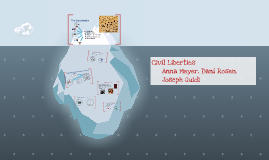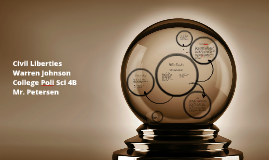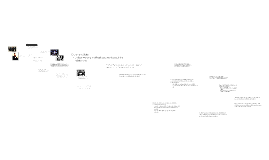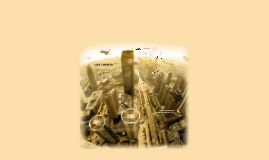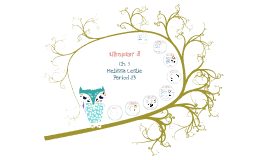Civil Liberties
Transcript: Civil Liberties - rights to be free of government interference and oppression provided by Constitution - freedoms (speech, press, from arbitrary arrest, expression) Civil Rights - rights or privileges we have as citizens - to vote, to bear arms, receive equal treatment How have both Civil Rights and Civil Liberties changed since the creation of the Constitution? How these rights apply to states: Supreme Court granted Bill of Rights to states in Barron v. Baltimore in 1833 with an Article I exception (banned ex post facto and put in writ of habeus corpus) Essential for Civil War and addition of 14th Amendment 'No deprivation to any person of life, liberty, or property, without due process of law' Bill of Rights and Amendments have to be upheld and enforced by states for slavery to be illegal McCullough v. Maryland - solidified that federal government had final authority over state governments incorporation - a doctrine where the Supreme Court includes many parts of the Bill of Rights into restrictions on state government actions Supreme Court ruled that states needed to uphold federal standards "Represented the very essence of a scheme of ordered liberty" Freedom of Expression - evolved over time 1789 illegal to publish any false or malicious writing about the president or Congress 1918 illegal to say or write anything disloyal or promoting of an enemy 1950s censorship of books and movies for sex and four letter words (even adultry) Symbolic Speech - Supreme court was concerned that any action (even illegal ones) could be defended by symbolic speech murder, arson, could all be 'expressions' that people argue fall under the first amendment Destroying property that is of a government institution is different than destroying symbols of authority - black arm bands, flags, - vs. draft cards Cannot use words that incite others to commit illegalities or promote violent behavior - illegal to use language directly to promote a fight but only illegal if it is a direct provocation -abstract use of hateful speech is protected Obscenity - obscene materials not protected because they do not hold social value - appeal to sexual nature as opposed to political or literary regulated by states definition of obscenity is the issue Justice Potter Stewart 'I know it when I see it' 1977 Nazis won right to parade through Skokie, Illinois (largely Jewish population) court argued that the Nazis had constitutional right to speak and assemble peacefully Church and State unclear wording in official documents about this relationship The Free-Exercise Clause - Congress will make no law prohibiting 'free exercise' of religion Exercise of religion still must abide by other Constitutional expectations: no serious harm to others, infringement on rights, polygamy, etc.... Establishment Clause - Congress shall make no law 'respecting an establishment of religion' How are these in keeping with the concerns of the Framers? How would this cause conflict/interpretative differences? Congress interpreted Establishment clause to address fears about standardizing/requiring a national religion also furthered interpretation to suggest that government should not be involved in religion at all Wall of Separation - interpretation of establishment clause in First Amendment that prevents government involvement with religious practices Variety of court cases addressing and clarifying government involvement Zorauch v. Clauson (1952) - students get time off from public schools for religious instruction or practice Engel v. Vitale (1962) no praying in public schools Challenges: How do we define religion? How can the extend of religious practices effect our role as a citizen? occupation, voting, military etc... Supreme Court test to decide whether government involvement is constitutional it has a secular purpose its primary effect neither advances nor inhibits religion it does not foster an excessive government entanglement with religion This test continues to be challenged especially in regards to religious/cultural celebrations How could local governments be confronted with challenges in regards to this wall of separation more so than the Federal Government? Bibliography: http://www.pbs.org/wnet/need-to-know/the-daily-need/are-we-becoming-a-police-state-five-things-that-have-civil-liberties-advocates-nervous/12563/ http://www.supremecourthistory.org/history-of-the-court/chief-justices/john-marshall-1801-1835/ http://pointreyesvisions.com/NewFiles/R_NY_Pages/Burning_Draft_Card.html Libel - purposefully published material that defames and individual - actual malice Slander - Spoken instead of written Prior Restraint - courts will not allow government to restrain or censor in advance any speaking ro writing will allow after the fact for publishing libels or obscenity Preferred Position - right to free expression occupies a higher status and rights are placed in a ranking order






